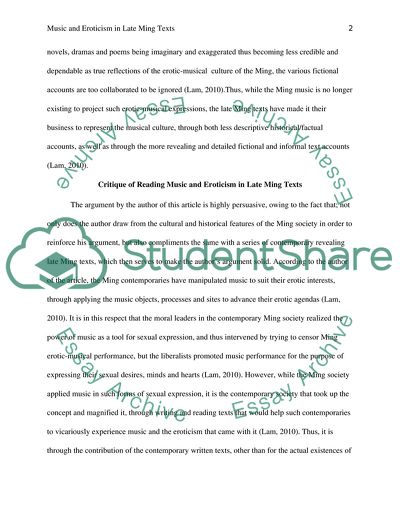Cite this document
(Music and Eroticism in Late Ming Texts Assignment - 2, n.d.)
Music and Eroticism in Late Ming Texts Assignment - 2. https://studentshare.org/music/1845249-reading-music-and-eroticism-in-late-ming-texts
Music and Eroticism in Late Ming Texts Assignment - 2. https://studentshare.org/music/1845249-reading-music-and-eroticism-in-late-ming-texts
(Music and Eroticism in Late Ming Texts Assignment - 2)
Music and Eroticism in Late Ming Texts Assignment - 2. https://studentshare.org/music/1845249-reading-music-and-eroticism-in-late-ming-texts.
Music and Eroticism in Late Ming Texts Assignment - 2. https://studentshare.org/music/1845249-reading-music-and-eroticism-in-late-ming-texts.
“Music and Eroticism in Late Ming Texts Assignment - 2”. https://studentshare.org/music/1845249-reading-music-and-eroticism-in-late-ming-texts.


